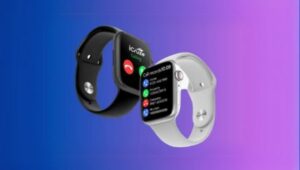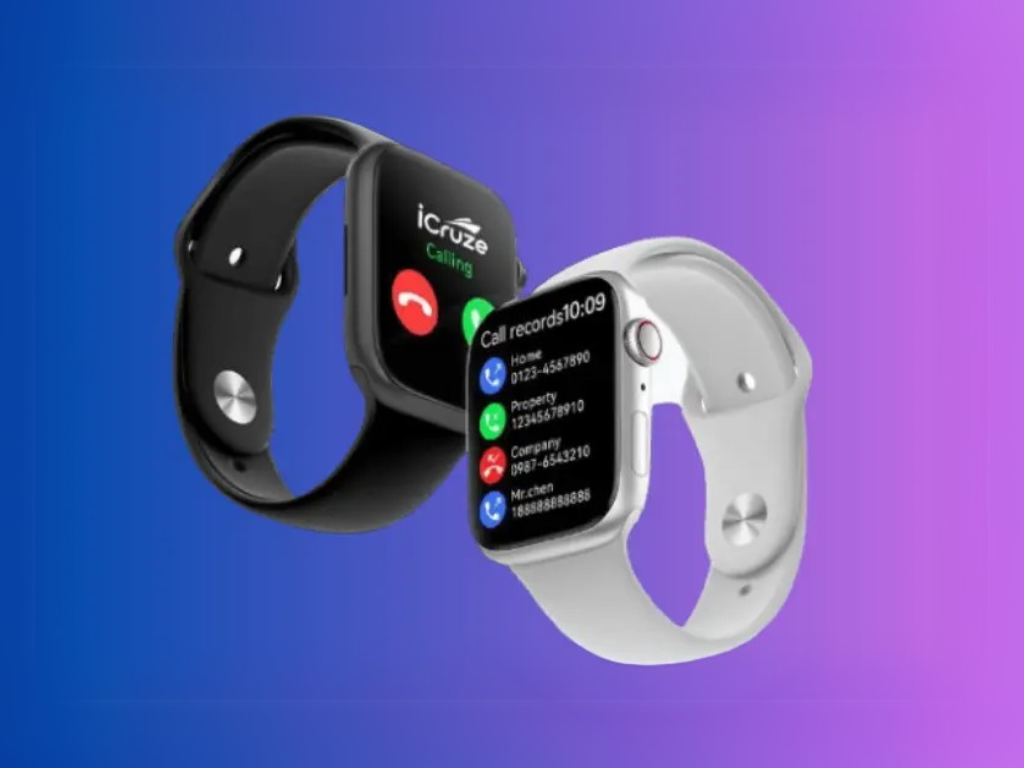Ankur Bisen on the Evolving Wearables Landscape and the Future Beyond Smartwatches
In an article published by YourStory, Ankur Bisen, Senior Partner & Head of Consumer, Food & Retail at The Knowledge Company, offers critical insights into the shifting dynamics of the wearables market.
As smartwatches face stagnation amidst declining demand and limited innovation, Ankur highlights the emerging trend of solution-driven wearables that cater to specific user needs beyond traditional health tracking.
The Decline of Smartwatches and the Rebirth of the Wearables Category
The smartwatch market, once the cornerstone of wearables, has faced a sharp slowdown, driven by a lack of significant innovation. As Ankur notes, the category is no longer standing apart as a distinct segment:
“This category has independently lost its steam. Wearables are now nebulous as a category; they don’t really exist anymore.
Today, it is simply a functionality packaged into smart electronics.
Tomorrow, it may take another form altogether, such as a chip embedded or pasted somewhere, moving away from smartwatches into something else.”
Ankur’s observation reflects a larger shift in consumer expectations.
What was once seen as a groundbreaking innovation in fitness tracking and communication is now just one of many features available across a variety of devices.
Consumers are increasingly questioning the value of incremental upgrades in smartwatches, especially when the same functionalities can be accessed through smartphones and other tech gadgets.
The Impact of Indian Founder-Led Feuds on Brand Loyalty For Ankur, the impact of founder-led reputation management can extend beyond the business itself.
He calls attention to the broader consequences, including how such behavior influences consumer trust and sets a poor benchmark for younger generations.
He also questions the core promise of the Q-commerce sector, which he believes is “oversold” in India’s tier-2 and rural markets, citing high fulfillment costs and limited scalability.
As Q-commerce platforms face increasing competition and pressures from investors, these public spats may provide short-term visibility, but they could come at the cost of long-term brand value and customer loyalty.
The Emergence of Solution-Driven Wearables: From Health Tracking to Health Impact
Where traditional wearables have faltered, new startups are stepping in with products that address specific consumer problems.
This new generation of wearables is focused not just on passive data collection but on active, solution-driven intervention.
These devices are designed to make a real-world impact on the user’s life, addressing concerns ranging from mental health to productivity.
Ankur emphasizes the importance of this shift:
“Today’s wearables have moved beyond monitoring and now essay an interventional role. To justify the tag of a health product, a wearable’s minimum viable outcome should be its ability to positively impact the wearer’s health.”
Companies are moving beyond simple health tracking functionalities like step counting or heart rate monitoring.
Solution-driven wearables now focus on delivering tangible benefits—whether that’s stress reduction, enhanced mental clarity, or the ability to track and manage conversations with AI-powered devices.
For instance, brands like
InnerGize and
NeoSapien are exploring mental health solutions, offering products that actively work to alleviate anxiety and even transcribe and summarize conversations in real-time.
These innovations are signaling a major shift in how consumers view wearables, moving from passive tracking devices to essential tools for improving daily life.
Price Sensitivity in the Premium Wearables Market: A Major Challenge
Despite these exciting innovations, Ankur highlights the significant barrier of price sensitivity in India’s market.
As more premium solution-driven wearables emerge, the challenge remains: consumers, accustomed to purchasing entry-level smartwatches at very low prices, are hesitant to pay a premium for these niche solutions.
Ankur succinctly explains the issue:
“A Rs 7,000–Rs 10,000 wearable is a very expensive product for a functionality that’s still niche.”
This price barrier is critical, especially in India, where consumer spending on tech products remains highly price-sensitive.
For the new breed of wearables to succeed, companies must focus not just on premium product features but also on delivering value that justifies the higher price tag.
However, as Ankur points out, some premium brands like Ultrahuman are managing to maintain their market position by leveraging strong R&D and a compelling brand proposition.
The challenge for new players will be in positioning themselves as not just another gadget, but as a critical tool that integrates into the consumer’s lifestyle in a meaningful way.
TKC’s Role in Guiding Businesses through the Wearables Shift
At TKC, we have been tracking the evolution of the wearables market closely, and our insights into consumer behavior, technology adoption, and market trends provide businesses with a clear roadmap for navigating this transformation.
Our expertise lies not only in understanding the current landscape but in anticipating future shifts in consumer needs and expectations.
As Ankur notes, the wearables market is undergoing a fundamental change.
The shift from passive data tracking to meaningful interventions represents a significant opportunity for brands to establish themselves as leaders in the next-generation wearables space.
At Technopak, we work with clients to identify emerging categories, optimize product offerings, and align them with the evolving demands of the consumer.
Whether it’s helping brands understand the nuanced needs of today’s consumers or providing actionable insights into pricing and positioning strategies, Technopak is at the forefront of guiding businesses through this transition.
Supporting Strategic Retail Transformation
Technopak’s deep expertise in the consumer, food, and retail sectors allows us to offer actionable insights into the wearables market and broader tech trends. Our multi-lens approach to market strategy focuses on:
Consumer behavior analysis and product innovation
Pricing strategy and premium product positioning
Navigating emerging technologies and category shifts
Optimizing customer experience and engagement in the wearables space
As the wearables market continues to evolve, Technopak remains committed to helping businesses adapt to the future of tech, positioning them for sustainable growth in a rapidly changing landscape.
Need help evaluating a new wearable technology or go-to-market model?
Reach out to Technopak for tailored, forward-looking consulting across the wearable tech, consumer goods, and broader retail transformation sectors.

